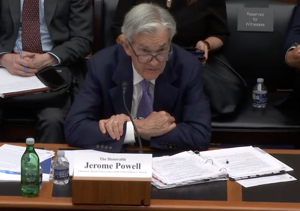RFK Jr. wants doctors to learn more about nutrition
Health and Human Services Secretary Robert F. Kennedy Jr. is calling on medical education organizations to teach doctors more about nutrition during training.
The U.S. Department of Health and Human Services announced a major initiative to push leading U.S. medical education organizations to “immediately implement comprehensive nutrition education and training.” The U.S. Department of Education is backing the call.
“Medical schools talk about nutrition but fail to teach it,” Kennedy said. “We demand immediate, measurable reforms to embed nutrition education across every stage of medical training, hold institutions accountable for progress, and equip every future physician with the tools to prevent disease – not just treat it.”
Kennedy said that he knows the industry can move quickly when needed.
“When Covid-19 struck, the U.S. healthcare system proved it could move with extraordinary speed. In the spring of 2020, telehealth visits surged 154% compared with the year before. What had been a niche service became nearly universal in weeks,” he wrote in an op-ed published Wednesday in the Wall Street Journal. “That rapid pivot showed us a truth too often ignored: When we recognize a crisis, the medical sector can adapt overnight.”
Kennedy questioned recent Association of American Medical Colleges data showing that all U.S. medical schools cover nutrition. He said other studies show that most medical students receive fewer than two hours of nutrition instruction. Research published in 2024 found that 75% of U.S. medical schools have no required clinical nutrition classes, and 14% of residency programs have a required nutrition curriculum.
Kennedy called for nutrition education across the continuum.
“Accrediting bodies and medical organizations look the other way, declining to set clear requirements,” he wrote in the op-ed. “We train physicians to wield the latest surgical tools, but not to guide patients on how to stay out of the operating room in the first place. We know that when applied properly, nutrition counseling can prevent and even reverse chronic disease.”
Dr. Alison J. Whelan, the AAMC’s chief academic officer, said medical schools do indeed teach doctors about nutrition.
“Medical schools understand the critical role that nutrition plays in preventing, managing, and treating chronic health conditions, and incorporate significant nutrition education across their required curricula,” she said in a statement. “Through integrated education experiences, future physicians learn how to recognize the impact of diet on health and to apply evidence-based nutritional strategies in patient care.”
The AAMC represents 173 accredited U.S. and Canadian medical schools.
Kennedy said nutrition education should start before medical school.
“Change starts with prerequisites for premed students and nutrition testing on the MCAT,” he wrote. “Accreditors must then establish new standards for preclinical nutrition education, more hours of clinical nutrition training during clerkships, and specialty-specific nutrition requirements across all residency programs.”
Latest News Stories

Starry Night

WATCH: Police officer, legislator: Seize opportunity to reform Illinois’ cashless bail

WATCH: IL Hospital Association: $50B rural hospital fund ‘woefully inadequate’

Rotarian Shane Todd presents program at Rotary Club

Illinois quick hits: Chicago businesses at 10-year low; school admin survey closes soon

Pritzker unveils Illinois LGBTQ hotline amid debate over transgender athletes

Meeting Summary and Briefs: Lake Land College Board of Trustees for July, 2025

Marine’s mother takes on troop transport duties for family visits

Trump plans to clean up Democrat-run cities over local objections

Lake Land Seeks State Funding for Major Renovations to Four Campus Buildings

Energy advocate applauds oil and gas commingling updates

Texas legislature passes redistricting map, governor to sign into law







